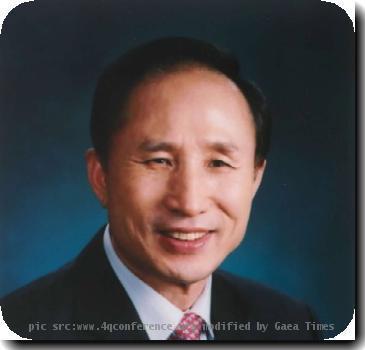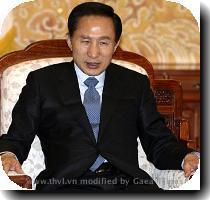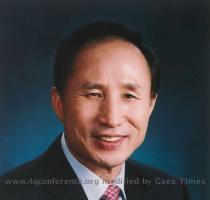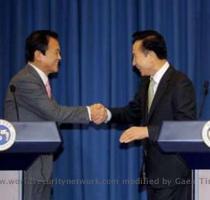Official: South Korea has no plans to resume food aid to North Korea
By Hyung-jin Kim, APSunday, August 22, 2010
Official: Seoul not considering food aid to NKorea
SEOUL, South Korea — South Korea has no intention of resuming food aid to North Korea, an official said Monday, a day after the ruling party chief questioned whether the assistance should restart because of recent flooding in the impoverished North.
For a decade, South Korea was a major donor of food to its communist neighbor before President Lee Myung-bak’s conservative government halted unconditional assistance after taking office in early 2008. Lee’s government also cut nearly all trade with North Korea after tension spiked over March’s deadly sinking of a South Korean warship blamed on Pyongyang.
The North’s economy is in shambles and the country has relied on outside food aid to feed much of its 24 million people. The North’s chronic food shortage was feared to worsen after flooding from an overflowing river over the weekend swamped farmland, houses and public buildings in the North’s northwestern city of Sinuiju.
Ruling Grand National Party chief Ahn Sang-soo asked the government Sunday whether Seoul should resume food aid to North Korea. Government representatives who took part in the meeting responded they would review the matter, according to a GNP statement.
But the Unification Ministry — which handles relations with North Korea — said Monday it has no immediate plans to resume food aid to North Korea.
“Currently, the government is not considering the issue of resuming rice aid to North Korea,” ministry spokesman Chun Hae-sung told reporters.
Chun said South Korea’s position on assistance to North Korea remains the same, though he said he would not comment on the GNP statement.
More than 5,000 people were evacuated in Sinuiju because of the flooding triggered after heavy rains over the last several days caused the Yalu River to breach its banks, according to North’s state media. Flooding also forced the evacuation of more than 250,000 people in northern China.
Much of North Korea’s trade with the world passes through the city bordering China, forming a vital lifeline for the isolated, economically struggling country. Flooding in previous years has destroyed crops and pushed North Korea deeper into poverty, increasing its dependence on international food aid.
The two Koreas officially remain at war because the 1950-53 Korean War ended with an armistice, not a peace treaty. Tension on the Korean peninsula deepened after a South Korean-led international investigation blamed North Korea for torpedoing the warship Cheonan and killing 46 sailors. North Korea has flatly denied any involvement.
Meanwhile, North Korea kept up its criticism Monday against Lee’s government over its detention of Rev. Han Sang-ryol, a Christian activist arrested last week after he returned from an unauthorized trip to the North.
The North’s main Rodong Sinmun newspaper in a commentary Monday called the arrest a “brutal suppression of reunification and patriotism.”
Officials say Han faces up to seven years in prison if convicted of violating the South’s security law that bans citizens from having unauthorized contact with North Korea and supporting its communist regime.
South Korea formally arrested Han on Monday after the Seoul Central District Court issued a warrant for the move, a court spokesman said.
“There were concerns that the suspect would destroy evidence or attempt to run,” court spokesman Kim Sang-woo said on Monday.
By law, the police in South Korea can detain a suspect for a 48 hours without a court-issued warrant, until prosecutors request one for a formal arrest.
The activist is charged with violating the National Security Law, by illegally entering the North and committing acts like praising the North Korean regime, Kim said.
Tags: Asia, East Asia, Emergency Management, Floods, Lee Myung-bak, North Korea, Seoul, South Korea



